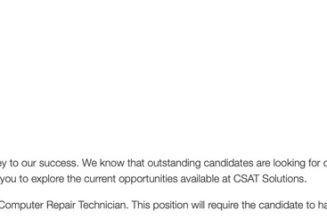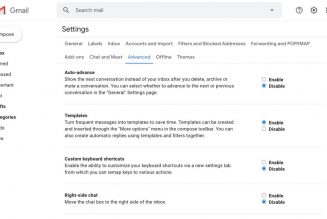
In a new blog post, Basecamp CEO Jason Fried apologized after the “policy changes” he announced last week ultimately led to a third of the company’s workforce opting to leave.
“Last week was terrible. We started with policy changes that felt simple, reasonable, and principled, and it blew things up culturally in ways we never anticipated,” Fried wrote. “David and I completely own the consequences, and we’re sorry. We have a lot to learn and reflect on, and we will.”
The blog post that started the software company’s terrible week was a list of new company policies that prohibited, among other things, “societal and political discussions” on internal forums.
Today’s social and political waters are especially choppy. Sensitivities are at 11, and every discussion remotely related to politics, advocacy, or society at large quickly spins away from pleasant. You shouldn’t have to wonder if staying out of it means you’re complicit, or wading into it means you’re a target. These are difficult enough waters to navigate in life, but significantly more so at work. It’s become too much. It’s a major distraction. It saps our energy, and redirects our dialog towards dark places. It’s not healthy, it hasn’t served us well. And we’re done with it on our company Basecamp account where the work happens.
As The Verge contributing editor Casey Newton later reported, the initial motivation for the letter arose from uncomfortable internal disagreements over a list of “funny names” of Basecamp customers. Several of the names on the list, of which management was well aware, were of Asian or African origin. Employees considered their inclusion inappropriate at best and racist at worst.
Backlash to Fried’s first blog post was swift and immediate and was followed by another post a few days later from company co-founder David Heinemeier Hansson, outlining a severance package for employees who weren’t comfortable with the company’s new direction. “No hard feelings, no questions asked,” Hansson wrote. “For those who cannot see a future at Basecamp under this new direction, we’ll help them in every which way we can to land somewhere else.”
But it was an all-hands meeting last Friday, Newton reported, that apparently pushed some employees who were on the fence to actually take the severance offer. Basecamp’s longtime head of strategy, Ryan Singer, questioned the existence of white supremacy at the company to the dismay of other employees. Singer, who had been with the company 18 years, eventually resigned.
Fried’s post on Tuesday included an apology, but it didn’t specifically reference any of the tension that preceded it and didn’t mention the situation with Singer at all. It also didn’t outline any specific changes Basecamp plans to make. For a company that’s been under the spotlight for a serious internal misstep, Fried’s post felt a bit like a placeholder until the promised third-party investigation takes place. Clearly, he and Basecamp had to address the situation publicly somehow. He wrote that the company would be “rooting for” the employees who left and apologized again to those who opted to stay:
Second, to our staff who remains with us: We know it’s tough to see colleagues leave, and we’re sorry we put you through that experience, but we deeply appreciate that you’re sticking with us. We have a great team in place, and it’s been wonderful and inspiring to see everyone helping one another, depending on each other, pitching in wherever they can, and supporting all our customers. A deep, heartfelt thanks.
Fried’s latest post also attempts to reassure customers that Basecamp is still committed to supporting them. “Our Technical Operations and Customer Support teams continue to ensure all our products are running smoothly, support requests are being answered, and new customer signups continue as usual.”
Fried closes with a promise to “regroup, rebuilt and get back to the business of making great software” — but, again, didn’t offer any specifics about what that would look like. “We’ve been in business for 22 years, through thick and thin,” he wrote. “We’re in it until the end of the Internet.”










